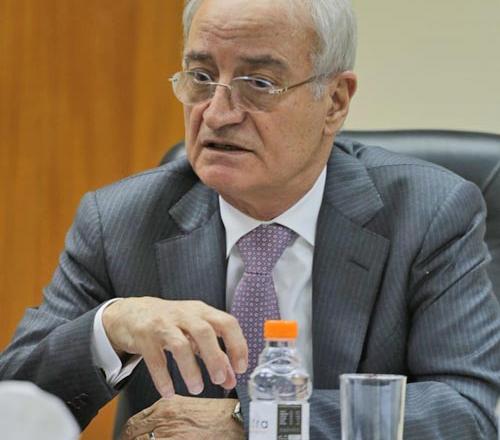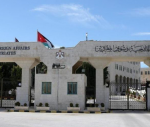You are here
Fiscal picture getting brighter — gov’t
By Omar Obeidat - Nov 27,2014 - Last updated at Nov 27,2014
AMMAN – Despite the tough economic and financial situation the country has seen in the past two years, Prime Minister Abdullah Ensour and Finance Minister Umayya Toukan said the fiscal picture is getting brighter.
The remarks came amid news of a four-year low in oil prices on the international market.
At a meeting with editors-in-chief of daily newspapers and economic columnists on Thursday, Ensour said that his government has reduced the ratio of the public debt to the gross domestic product in a manner that no government has achieved, bringing it to around 62 per cent of the GDP. Currently, Jordan's public debt stands at around JD20 billion, according to official figures.
The economy expanded by 3.3 per cent in the first half of the year compared with 2.8 per cent last year, he noted, adding the exports increased, imports of goods decreased and the gap in the trade balance was narrowed.
On the 2015 budget draft law, which the government presented to Parliament earlier this month, the premier underlined that the deficit in the JD8.09 billion spending bill is estimated at JD688 million, compared with JD911 million in 2014.
"The ratio of the deficit to the size of overall expenditure is nearly 8 per cent, which is a good and acceptable percentage," he said, adding that projections in the budget laws his government prepared for 2013 and 2014 were achieved.
For example, he said, local revenues for 2014 were estimated at JD5.8 billion and this figure was achieved as planned, adding the budget size was put at JD8.1 billion and spending was JD7.9 billion.
“These indicators give credibility to the budgets and estimates we prepare,” the premier said.
Ensour said that although regional challenges harmed the Kingdom’s economy in terms of refugee influxes, and the burdens they placed on infrastructure and resources, Jordan remains a stable country able to attract tourists and capital inflows.
Toukan said the government adopted a stable and consistent financial approach by controlling spending and more prudent utilisation of financial resources.
The minister said the government also improved the business environment in the country and will continue to follow best practices in this field.
According to Toukan, if oil prices continue to slide, this would reduce Jordan’s oil imports by JD1.2 billion. The Kingdom’s oil bill in 2013 reached over JD4 billion, he added.
On the targeted budget deficit for next year, he said it would be 2.5 per cent of the GDP, a figure he said was much better than he personally expected.
Toukan said consistency in economic planning will spare Jordan future setbacks that could be caused by local and regional circumstances.
“Jordan is set to see economic prosperity if we continue this approach and if things calm down around us,” he said, referring to instability in neighbouring countries such as Syria and Iraq.
The minister said that foreign reserves at the Central Bank of Jordan have registered a record level as currently they stand at JD14.3 billion.
Related Articles
The Cabinet has endorsed the draft state budget law for 2015, with a slight expansion of 3.2 per cent in spending and an estimated deficit of JD688 million.
AMMAN – Prime Minister Abdullah Ensour on Monday said that Jordan's economy is on the right track due to financial and monetary stability de
Finance Minister Umayya Toukan on Sunday said the ministry has rejected proposals by the International Monetary Fund (IMF) to increase the sales and other taxes.

















